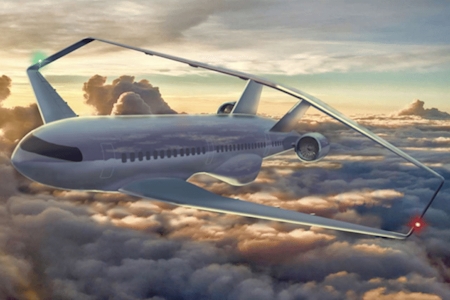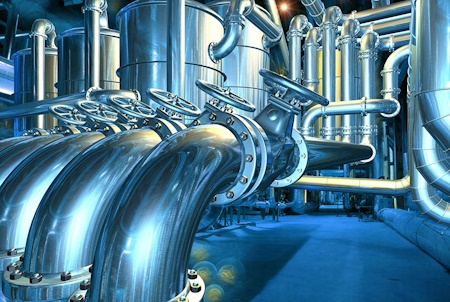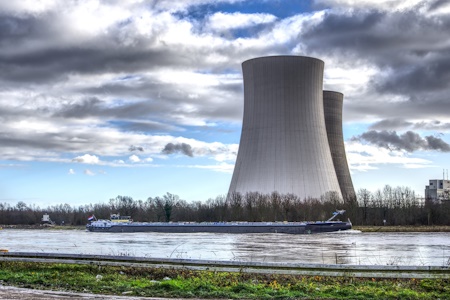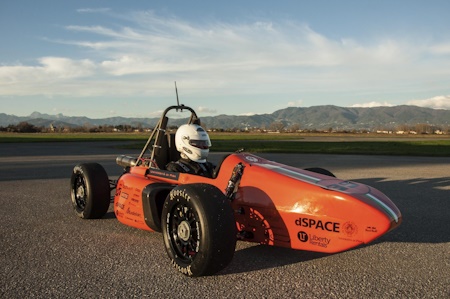The PhD Program in Industrial Engineering provides an opportunity for graduates in engineering to refine their skills and complete their training to enter various fields, both industrial and academic and research. At the same time, the PhD students commit to finding innovative solutions for processes and products for sustainable development that respects the environment, capable of improving living conditions for everyone in accordance with the guidelines of the PNRR.
The research topics covered range across different sectors, reflected by the five curricula of the course:
Educational Project
The educational project of the PhD Program in Industrial Engineering spans three years. Typically, training is concentrated in the first two years, leaving the third year for completing research and writing the thesis.
The training includes both mandatory and elective activities: attendance at courses specifically organized for PhD students in Industrial Engineering is considered mandatory, while other more specific courses/seminars/workshops are optional. Given the breadth and variety of topics covered in the five curricula of the PhD, the common training path for all PhD students is focused on cross-disciplinary topics useful for research but missing from the degree courses. For example, in recent years, courses on optimization problems, management of uncertainty in data and measurements, statistics, and elements of programming have been of particular interest. The courses are defined each year based on student requests and faculty availability. Learning is assessed through practical examples, often related to specific research, using the acquired skills. Academic English courses are also mandatory to improve article writing and conference presentations.
PhD students may supplement their training with other courses, not only those organized by the University but also intensive courses, 'Summer Schools,' or workshops, depending on their specific skills and research needs. The program also strongly encourages international experience, facilitated by the numerous international collaborations of the faculty members. Internationalization is also promoted by encouraging participation in international conferences and workshops, which contribute to the dissemination of research and also allow for interaction with industry experts and help build research networks and contacts.
Finally, PhD students are also encouraged to develop their training in entrepreneurship, innovation, and so-called 'soft skills', taking advantage of the opportunities offered by the University of Pisa with the Contamination Lab.
The individual training plan for each PhD student, as well as the research plan, is defined in agreement with their supervisors and approved by the Faculty.
Aims
The purpose of the PhD Program in Industrial Engineering is to train highly qualified experts who are competent in the specific area of research of their doctoral studies but are also trained to frame and tackle complex, multidisciplinary problems, both in industrial and research settings. Thus, the goal of the program is twofold:
1) to achieve significant results for scientific research, as the doctoral research should contribute to the advancement of knowledge and innovation, particularly in the technological field;
2) to enhance postgraduate training to fill roles as highly qualified experts in universities, research institutions, but also in companies, etc.
The individual training and research plan for each PhD student is defined by their supervisors to guide and support them in achieving these goals, with the support of the Faculty. In terms of research activity, the PhD Program, given the number and variety of expertise within the faculty across its five curricula (Aerospace Engineering, Chemical and Materials Engineering, Mechanical Engineering, Nuclear and Industrial Safety Engineering, Vehicle Engineering and Transport Systems), can offer doctoral students a wide range of research topics to choose from based on their skills and preferences. Thanks to numerous collaborations with research institutions and companies, doctoral students have the opportunity to participate in significant national and international projects. In many cases, they are also able to combine theoretical or simulation work with practical/experimental activities, thanks to the numerous laboratories available in the DICI and at the University. As an achievement of the first goal, scientific results are generally presented at conferences and should merit at least one publication in a qualified journal, preferably with an Open Science approach.
The second goal, namely the enhancement of the doctoral students' training, is achieved through courses specifically organized for them by the Program itself or other courses/seminars/workshops identified at the University or other locations. Each curriculum has over the years selected a series of opportunities for expanding expertise on specific subjects, increased in recent years by the numerous distance learning courses available.
Language skills are supported by two English courses from the Interdepartmental Language Center. PhD students are also strongly encouraged to spend part of their activities abroad, both for aspects related to research and for their personal growth.
Doctoral students have the opportunity to participate in the courses and activities of the University's 'Contamination Lab', conceived and organized as a training pathway aimed at researchers and students to promote and disseminate entrepreneurial and innovation culture, the valorization of their ideas, and interdisciplinarity.
At the end of the PhD, our students will be capable of operating in research and development across various sectors of industrial engineering, ranging for example from machine and plant design, to aerospace and space technologies, and the development of innovative materials, with attention to aspects of innovation, digitalization, and environmental sustainability supported by the PNRR.
Expected career and professional opportunities
Considering the variety of skills associated with the five curricula of the course, the professional and employment opportunities for the PhD in Industrial Engineering (DRII) are manifold. Generally, the course provides high-level skills, which can allow PhDs to access prominent positions in universities, research institutions, and large companies. The DRII may be qualified to manage or conduct research activities aimed at designing machinery, various types of plants, developing innovative materials, simulating complex multiphysical phenomena, etc. Specifically, the potential career paths will be oriented based on the curriculum followed by the doctoral student: structures and materials in aeronautics, fluid dynamics, flight mechanics, and aerospace propulsion (curriculum in Aerospace Engineering), applications of nuclear technology and methodologies for environmental safety and protection (curriculum in Nuclear and Industrial Safety Engineering), chemistry and materials, sustainable development, safety and optimization of plants and energy production processes from renewable sources (curriculum in Chemical and Materials Engineering), advanced design, testing, production, operation, life extension, or recycling of machines, plants, and mechanical systems (curriculum in Mechanical Engineering), and the design, testing, implementation, and operation of terrestrial vehicles (road, rail) and transport systems (Engineering of Terrestrial Vehicles and Transport Systems).
The multidisciplinary approach of the course is one of its distinguishing elements and also one of the strengths of the PhD profile, which can find professional opportunities even in sectors different from those mentioned above.
Alignment with the objectives of the PNRR
Given its scientific-technological connotation and its interdisciplinary nature, the PhD Program in Industrial Engineering aligns perfectly with many objectives of the PNRR, as evidenced by the research activities described on the website https://dici.unipi.it/ricerca/attivita-di-ricerca/ and the projects conducted by the faculty members.
The numerous collaborations with companies, which often result in the funding of scholarships or research grants, can in many cases be categorized under 'Mission 4: Education and Research', particularly on the theme 'M4C2: From Research to Enterprise'. In some cases, these activities have led to the establishment of shared research laboratories (AM Testing, Baker Hughes). In other cases, they aim to improve the competitiveness of the companies themselves through a review of their facilities, including digitalization, falling under 'Mission 1: Digitalization, Innovation, Competitiveness, Culture and Tourism', specifically referring to 'M1C2: Digitalization, Innovation, and Competitiveness of the Production System'. The digitalization of industry is a much sought-after and strategic intervention that allows for the control of recycling and efficiency in the use of raw materials and production facilities, and significantly improves performance and energy consumption, reducing waste and thus CO2 emissions. Faculty members handle these aspects for chemical, mechanical, and aerospace facilities. Numerous research projects also fall under 'Mission 2: Green Revolution and Ecological Transition', especially on the theme M2C2 'Renewable Energy, Hydrogen, and Sustainable Mobility'. For example, within the nuclear curriculum, there is focus on the development of small modular nuclear reactors, which could expand the low-carbon energy mix, or the creation of systems for detecting radioactive material dispersed in the environment or in scrap, which helps protect the population and workers from undue radiation, especially in border railway and port areas. There are also studies on aspects related to the hydrogen supply chain, on mechanical solutions to improve the efficiency of wind systems. Moreover, particularly in the curricula of terrestrial vehicles, Chemistry and Aerospace, aspects of sustainable mobility are studied, with hybrid and electric systems, batteries, seeking solutions for vehicle lightening, achieved for example through structural optimization for additive manufacturing. There are also research activities under 'M2C1 - Sustainable Agriculture and Circular Economy', focused mainly on the recycling of waste, including hospital waste. Within the energy and green economy theme, both technologies powered by renewable energy sources and the implementation of production lines for minimal waste in various production phases and a reuse of scrap components with their new valorization and introduction to the market are studied.
Finally, there are activities in the biomedical field, related to 'Mission 6: Health', along the line 'Scientific Research in the Biomedical and Health Sector', for example on diagnostics and dosimetry with MRI and on the tribology of joint prostheses.
The organization of the course itself is consistent with the directives of the PNRR, particularly referring to the following points:
- Definition of a training and research path mainly centered at the Department, relying on other University structures (CISUP) or entities/companies involved in the activity;
- Encouragement of periods abroad of at least 6 months;
- Availability of laboratories and specific facilities for study and research activities (https://dici.unipi.it/laboratori/, https://cisup.unipi.it/);
- Support and training for the valorization of research results and ensuring the protection of intellectual property, through courses held by the University or the Clab (http://contaminationlab.unipi.it/);
- Promotion of 'Open Science' and 'FAIR Data' principles;
- Interdisciplinarity, adherence to international networks.
The PhD Program also supports the so-called cross-cutting priorities of the PNRR, especially regarding equal opportunities, given the limited number of female doctoral students participating in the course.
Collaborations
Thanks to the faculty members' connections with companies, research institutions, and universities both in Italy and abroad, the PhD Program has numerous collaborations, such as with Nuovo Pignone – Baker Hughes, ENEA, Leonardo, Dallara, … University of Lublin, etc.
Regulations










